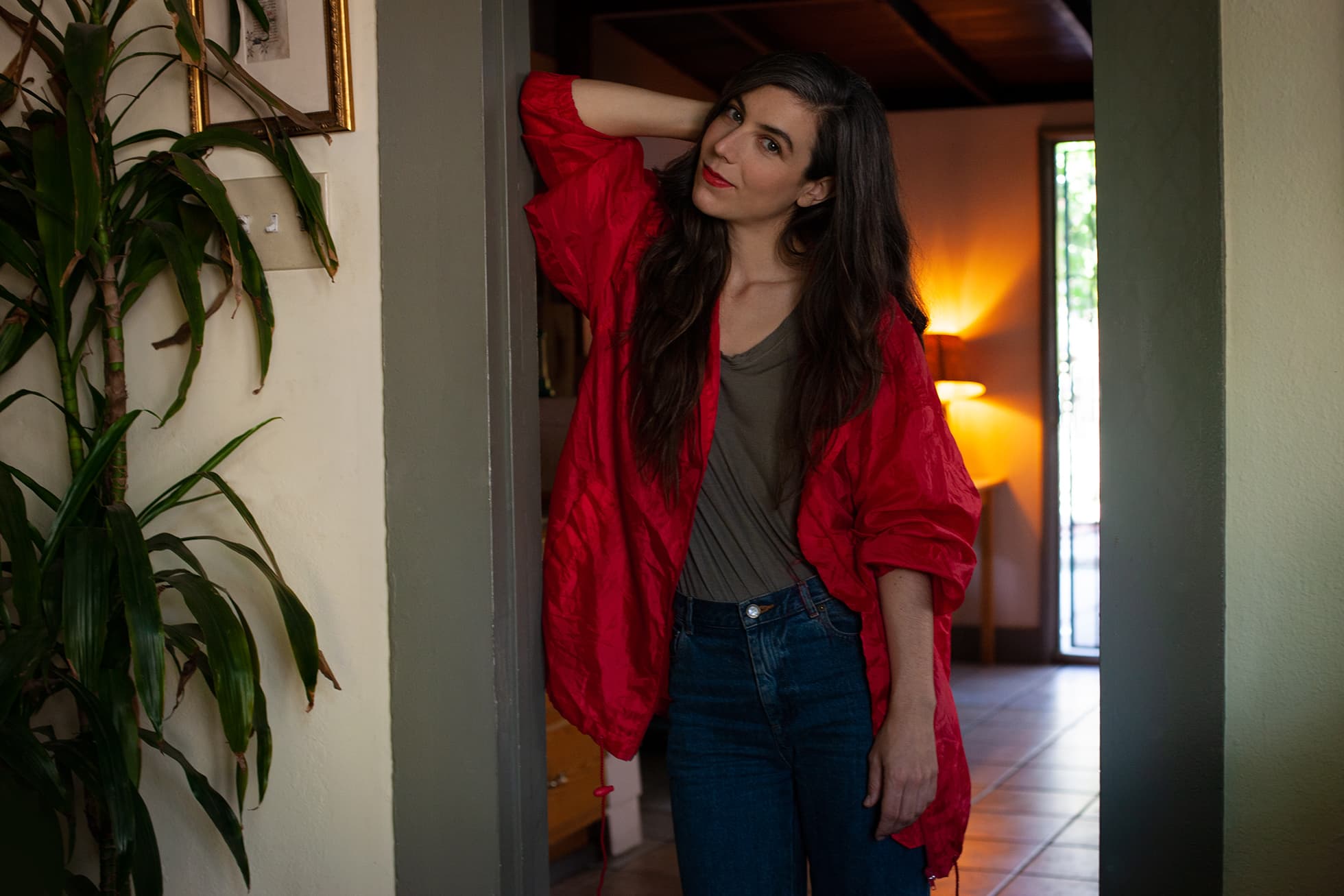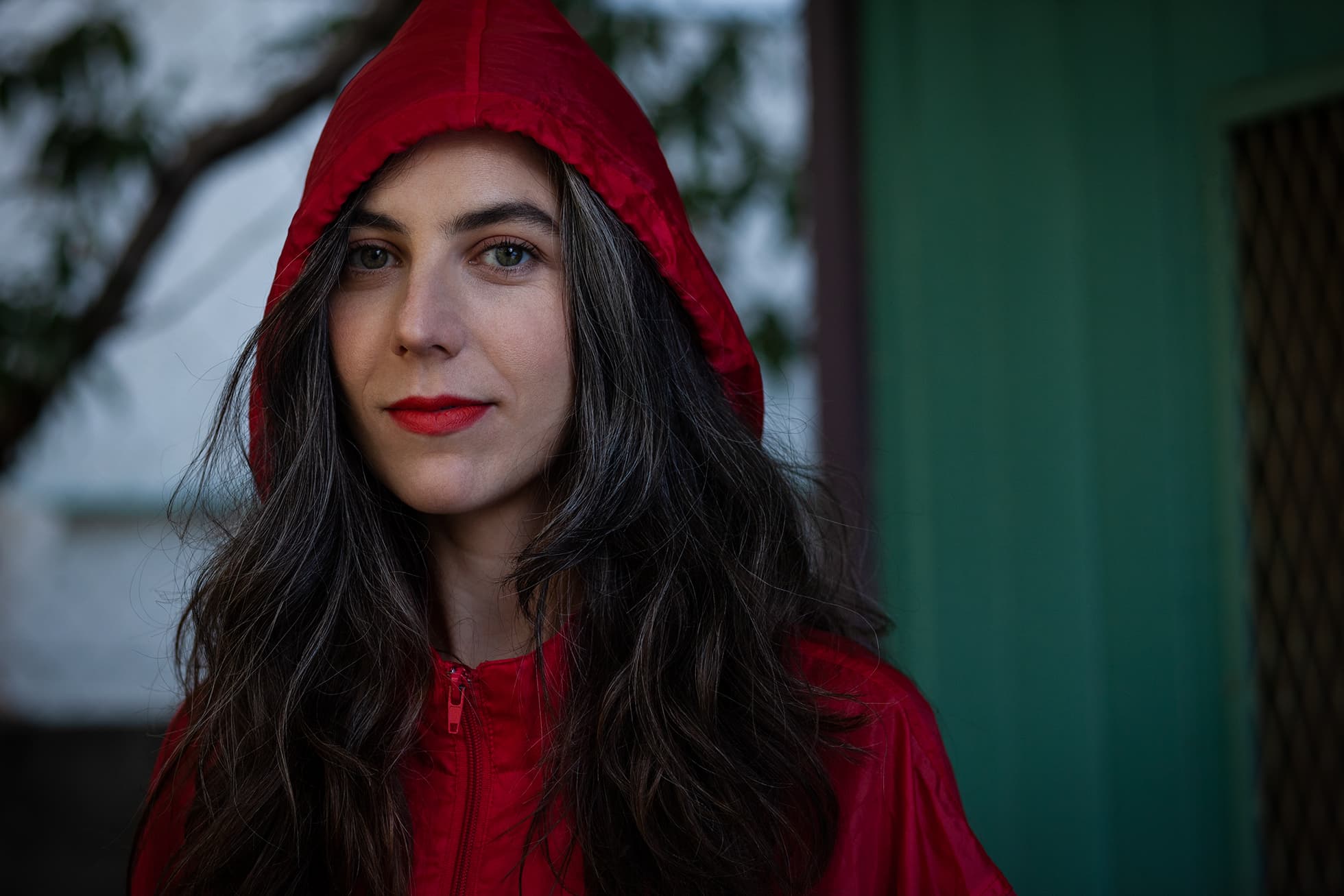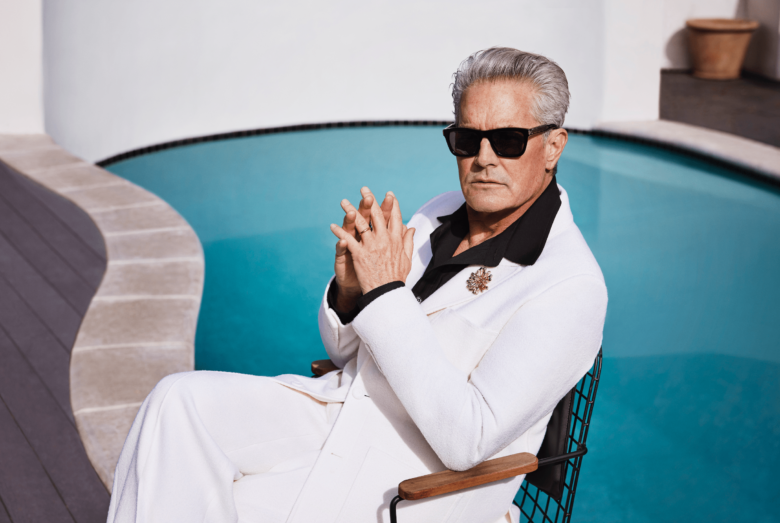Julia Holter on creating meaningful music in a tumultuous world
Like the rest of us right now, Julia Holter is feeling the effects of living through such tumultuous times. But if there is one positive to take from it, it’s that the musician is making the best music of her career, using her craft to filter her feelings of uncertainty. Released earlier this year, her eighth album Aviary is an amalgamation of her emotions, some of which mirror many of our own. “Amidst all the internal and external babble we experience daily, it’s hard to find one’s foundation,” she said of the release. “I think this album is reflecting that feeling of cacophony and how one responds to it as a person – how one behaves, how one looks for love, for solace.” We catch up with Julia in Los Angeles to find out where she goes from here.
You described your recent album as “the cacophony of the mind in a melting world” – how has the current state affected your mind, and in turn your music?
I’m still figuring it out but I think on a general level it’s an overwhelming time these days for people and I don’t know how it’s affected me yet. One of the tracks on the record is called “Colligere”, which means like ‘to gather or collect’. I think in making this record, I was exploring this process and how I’ve used it in the past for creativity—an accumulating of both sound and text layers (both my own and found)—to build something new, and so naturally memory and the subject of memory seemed relevant. The way memory interferes with the present and this kind of time warp effect was really an interest for me. I definitely feel like this kind of ‘collecting’ of so much stuff, that can be in one way overwhelming, also can yield surprising results I don’t anticipate, greater than the sum of its parts, something beyond myself, and I really enjoy that surprised state.
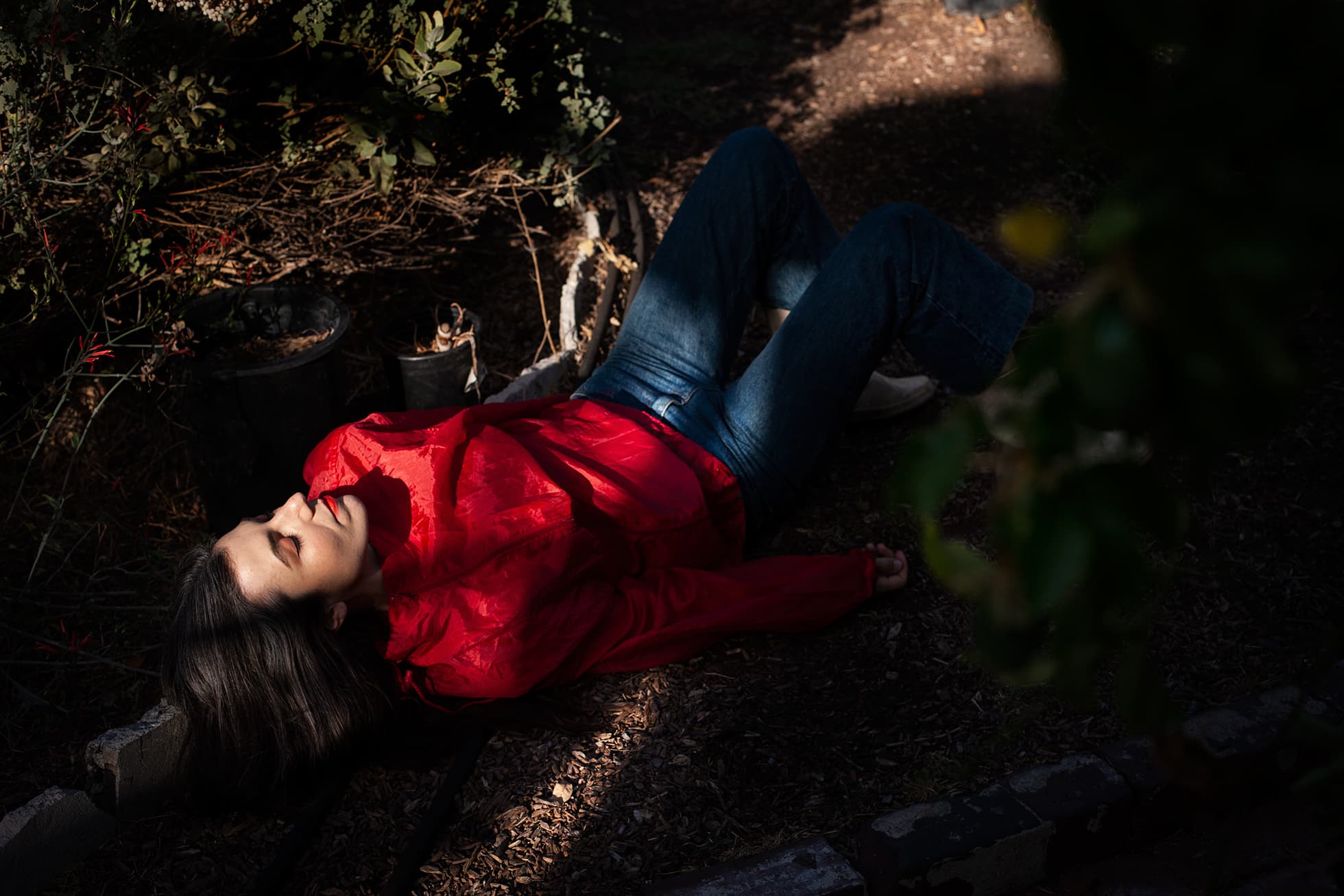
You began the album in 2016, what kind of evolution did it go through from then until now?
It was kind of a studio sandwich, so it started and ended with recordings I made at home, with studio recordings we did in February in the middle. A simplified version of the process would be: I wrote/improvised at home and recorded it, then transcribed my improvisations/ideas for musicians to play (in various ways, with notation, or just with verbal direction, etc) and also just had my home recordings ready for musicians to play along to, then we recorded in the studio with Kenny Gilmore and Cole MGN, then I did more recording at home, and a lot of pre-mixing/production and final mixing with Kenny.
Do you feel a responsibility as an artist to spotlight what is happening in the world? And what do you think the power of music is in testing times like this?
I feel some responsibility yes, because of my various privileges. I also realise my understanding of the world is limited to my experience in some ways, and so it’s a hard balance, with things like social media where you feel pressure to be a direct role model in a way. But I try to think of it positively—one of the things I’ve thought about a lot recently is how fascism is a destruction of the imagination. So I feel like if we can keep music creative and independent, I do honestly feel like it can help ward away fascism and/or indicates some elements of a healthy society. So what I’m saying is, whether or not I think my music is always great or whatever, or whether or not it’s popular, if I’m doing what I want to be doing (which I am), then I feel like I can be a role model for musicians that want to do their thing and be supported. I’m so grateful for the support of a label like Domino and I hope that the music industry, in all of its confusion these days, will support musicians doing creative things, because I genuinely believe people have more open ears than we give them credit for. I think there’s a huge audience for creative music.
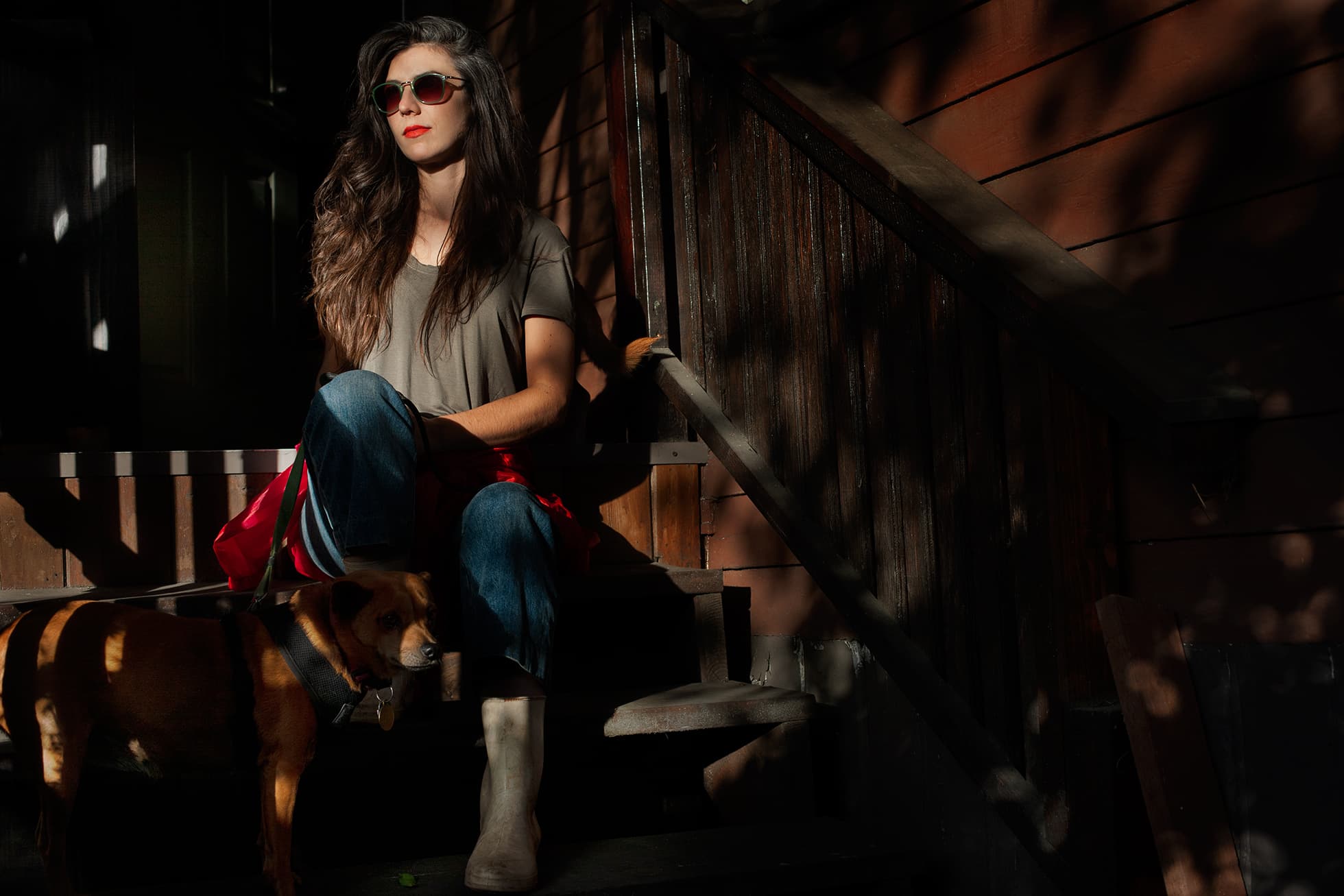
What has the process of creating this album taught you about yourself? And do you think it will change how you create music in the future?
I honestly don’t know, it’s hard for me to analyse, but the record feels very personal for me. There’s sadness here, and joy, self-questioning, indulgence in pleasure, and love. I don’t know how it will change how I create music, I think of each of my projects as different from one another, but of course, memory and the past plays a big role in the present (my record focuses on this), and so my future projects will be affected by this somehow!
What kind of response have you had from fans?
I don’t think I’ve ever felt such emotional responses from people on any other record. I’ve had people email me and write saying how much it means to them. I particularly noticed people say if they were upset about the world and stuff, that songs like “Turn the Light On” and “Words I Heard” helped them. That kind of stuff is what I share my music for, it makes it feel real and justifies it to me in a way. Obviously this kind of response is not unique to my music, this is what music does and why it’s so important.
The album is also loaded with historical references, where does the research process start for you with each record?
Haha “research” sounds kind of…stilted haha. I’m way messier and less methodical than that, I think an easier way for me to think about this is that when I’m working on music a lot of times the stuff I’m reading or listening to seeps into what I’m making. On Aviary I was into exploring memory in the mind, how the past co-exists with the present, and there’s this kind of time-warping, medieval and future kind of imagery.I think I’m interested in time-warps a lot in all my music too though actually, so like the words of Sappho can ring true today just as much as in the past. Again, the “colligere” process, like collecting together lots of different sounds and texts (both my own and found ones) has seemed over time to be the way I like to work, I like the surprising elements of it, and the sort of process of translation of different ‘voices’ over time. And so I think that best explains what people sometimes call my “references”—it’s not super important for listeners to pay attention to them, it’s more like, I bring together these different things as material for the actual music. Like they become part of it almost, more than just references (one friend referred to this as similar to “palimpsest” although I think that’s a bit difference but an interesting way of thinking about it?).

What kind of parallels have you been able to draw between the eras in history referenced on the album and now?
For me this was really not a super methodical thing, again, so I try not to dwell too much on specific historical things, but I have felt like the Crusades seem relevant to now. Likewise, I think my interest in Blade Runner (obviously a fictional story lol but written as a book and made as a film in previous decades, so also interestingly historical now) was related to urban noir apocalyptic stuff, and questions of what it means to be an empathic human in a corrupt world, etc
Which books have had the biggest impact on you?
Of all time I honestly don’t know, that always takes me a while to think lot about. But recently I was really impacted by a short book by Edward Said called Representations of an Intellectual. For some reason, even though musicians are not really “public intellectuals” exactly, I was really moved by how he talked about the responsibilities of one and it felt relevant in this time in which artists have direct access to speech through social media. I think we live in an increasingly conservative world, including the music world, and it’s important to stay true to oneself regardless of trends and corporate interests, and that was part of what I got out of that book. A simple message in the end, but really carefully discussed.
What’s the plan next, have you started thinking about your next project yet?
Touring Aviary! I also just finished scoring a TV show called Pure that should be out in January.
Aviary is out now
